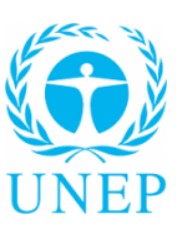Zoos, Botanic Gardens, and Museums
Zoos, Botanic Gardens, and Museums
Grant makers are listed in alphabetical order by name of organization
Many of the world’s zoos and aquariums, botanic gardens, and museums make grants that advance international conservation. In this group, we also include grant-making trusts and other organizations whose missions are allied with the work of zoos, botanic gardens, and horticulture.
A high proportion of grants are intended for young professionals and university students. Others are for senior professionals, and yet others are for conservation organizations.
Note: The Terra Viva Grants Directory also offers short profiles of Birding Groups and Wildlife Societies.
American Museum of Natural History
 The American Museum of Natural History (AMNH) provides training across multiple disciplines, including comparative biology and the fields of anthropology, invertebrate zoology, paleontology, physical sciences (astrophysics and earth and planetary sciences), and vertebrate zoology.
The American Museum of Natural History (AMNH) provides training across multiple disciplines, including comparative biology and the fields of anthropology, invertebrate zoology, paleontology, physical sciences (astrophysics and earth and planetary sciences), and vertebrate zoology.
Geographical Distribution: Worldwide
Research Grants – annual application deadline varies by program area
The American Museum of Natural History offers academic fellowships and research grants in biology, ecology, zoology, wildlife conservation, paleontology, anthropology, and some fields of the physical sciences. Most awards are for students and young professionals in various categories – university students, graduate students, postdoctoral fellows, and junior scientists.
Programs of field grants with international applicability include the Lerner-Gray Grants (marine zoology), and the Frank M. Chapman Grants (ornithology).
- Lerner-Gray Grants: Priority is for projects on systematics, evolution, ecology, and field-oriented behavioral studies of marine animals. Grants are generally between US$500 and US$3,500.
- Collection Study Grants: The program supports travel and subsistence for postdoctoral investigators and other early career research scientists to study the scientific collections at the American Museum of Natural History.
Link to website
American Orchid Society
 The American Orchid Society is a horticultural society devoted to education, conservation, and research of orchids (plant family Orchidaceae).
The American Orchid Society is a horticultural society devoted to education, conservation, and research of orchids (plant family Orchidaceae).
Geographical Distribution: Worldwide
Conservation Awards – annual nomination deadline
The American Orchid Society sponsors Conservation Recognition Awards for outstanding work in orchid conservation, including at the international level.
- Award recipients are students, amateurs, and professionals engaged in the study or conservation of native orchids.
- Awards are for US$500. Runner-up awards are US$250.
Link to website
Association of Zoos and Aquariums
 The Association of Zoos and Aquariums is edicated to the advancement of North American zoos and public aquariums in the areas of conservation, education, science, and recreation.
The Association of Zoos and Aquariums is edicated to the advancement of North American zoos and public aquariums in the areas of conservation, education, science, and recreation.
Geographical Distribution: Worldwide
Conservation Grants Fund – annual application deadline
The Association of Zoos and Aquariums sponsors the Conservation Grants Fund for grants to AZA-accredited zoos and aquariums, sometimes in partnerships with other conservation organizations.
- Grants are made in several categories: animal health; animal welfare; conservation education; field conservation; management and/or captive breeding; and research.
- Each principal investigator in a proposal to AZA must have an AZA membership. Average grant size is about US$18 thousand.
Link to website
Auckland Zoo
 The Auckland Zoo supports conservation efforts in the wild, in New Zealand and overseas. Financial resources go to organisations and individuals to carry out vital field conservation work.
The Auckland Zoo supports conservation efforts in the wild, in New Zealand and overseas. Financial resources go to organisations and individuals to carry out vital field conservation work.
Geographical Distribution: Worldwide
Small Grants Program — two deadlines each year
The Auckland Zoo Conservation Fund Small Grants Program helps provide relatively small levels of funding for ongoing projects or pilot programs that have clear conservation value.
- Eligibility is open to individuals or organizations for projects in New Zealand or for projects in countries in the developing world. Applicants can be based anywhere in the world.
- Grants are a maximum of NZD$5 thousand, and usually in the range of NZD$2 thousand to NZ$4 thousand.
Link to website
Barcelona Zoo Foundation
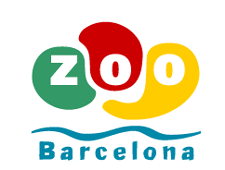 The Barcelona Zoo supports scientific research to support the conservation of the species and preservation of biodiversity on the planet.
The Barcelona Zoo supports scientific research to support the conservation of the species and preservation of biodiversity on the planet.
Geographical Distribution: Worldwide
Grants for Research and Conservation — annual application deadline
The Barcelona Zoo Foundation makes grants for conservation, education, and awareness towards biodiversity.
- The grant categories include one for research on the native fauna of Catalonia; another for projects proposed by external researchers; and another for research on primates.
- Most information is in Catalan.
Link to website
Brevard Zoo
Grants for Research and Conservation — annual application deadline
The Brevard Zoo Conservation Fund “Quarters for Conservation” supports projects in wildlife conservation through surcharges paid by zoo visitors and members.
- Quarters for Conservation(Q4C): Three projects in international wildlife conservation are chosen each year for funding of up to US$14 thousand per project.
- Wildlife Emergency Fund (WEF): The Wildlife Emergency Fund is a small grant program that provides emergency funding of up to $2,500 to address severe and time-sensitive threats to wildlife. This program is ongoing.
Link to website
Chester Zoo
Studentships, Scholarships, and Research Grants – annual application deadline
The Chester Zoo offers studentships, scholarships, and research grants in support of wildlife conservation.
- Research grants are made to PhD students and professional researchers.
- Research grants are also available to undergraduate and masters students who do observational research at the Zoo.
- The Conservation Scholars are based at UK universities.
Link to website
Chicago Zoological Society
Endangered Species Fund – multiple application deadlines each year
The Chicago Zoological Society administers the Chicago Board of Trade – Endangered Species Fund. Grants are for applied projects in developing countries in themes of protection of threatened and endangered species, and protection of habitats of high biological value that are substantially threatened.
- The Fund gives priority to capacity building, and it encourages local scientists and conservationists as project leaders.
- Grants are under US$5,000.
Link to website
Columbus Zoo
Fund for Conservation
The Columbus Zoo Fund for Conservation supports research, education, capacity building, and community involvement in countries around the world.
- Due to the overwhelming demand for conservation grant funds, the zoo is temporarily not accepting proposals from new applicants.
Link to website
DierenPark Amersfoort
Wildlife Fund for the protection of nature and endangered species – annual application deadline
The DierenPark Amersfoort Wildlife Fund wants to make a structural contribution to the protection of nature and especially endangered species.
- Maximum funding amount: €10 thousand
- Examples: projects for endangered species, research for veterinary medicine or helping to shelter animals
Link to website
Field Museum
Research Scholarships and Grants – annual application deadline varies by program
The Field Museum (Chicago) offers grants and fellowships to visiting scientists and students for research and training on the Museum’s scientific collections.
- Grants are open on a competitive basis to all individuals in the international scholarly community working on research related to natural history.
Link to website
Fresno Chaffee Zoo
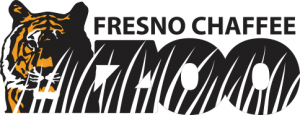
Wildlife Conservation Fund – annual application deadline
The Conservation Fund makes grants to promote the understanding and enjoyment of rare, threatened, and endangered animals and their habitats. It also supports zoological research that benefits animals in captive management.
- Principal investigators must be associated with recognized institutions such as zoos, academic institutions, conservation organizations, NGOs, etc.
- Awards are in any amount, with most in the range of US$1,000 to US$2,000.
Link to website
Indianapolis Zoo
Indianapolis Prize for Career Achievements in Wildlife Conservation – nominations are invited every other year
The Indianapolis Zoo awards the Indianapolis Prize to an individual who has made significant achievements in animal conservation.
- At US$250 thousand, the Prize is among the world’s largest monetary awards for animal conservation.
Link to website
International Marine Animal Trainers Association
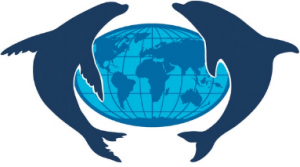
The International Marine Animal Trainers’ Association is dedicated to advancing the humane care and handling of marine animals through training, public display, research, husbandry, conservation, and education.
Geographical Distribution: Worldwide
Research Grant — applications accepted throughout the year
IMATA provides financial support for investigations which address IMATA’s mission to advance the humane care and handling of marine animals by fostering communication between professionals that serve marine animal science.
Grants can be made to principal investigators or co-principal investigators who have been members of IMATA for at least two years.
- Grants are up to US$3 thousand for projects of one year.
Link to website
International Zoo Educators Association
 The IZE is an association to expand the educational impact of zoos and aquariums to achieve biodiversity conservation by encouraging sustainable behaviors in people that visit zoos and aquariums.
The IZE is an association to expand the educational impact of zoos and aquariums to achieve biodiversity conservation by encouraging sustainable behaviors in people that visit zoos and aquariums.
Geographical Distribution: Worldwide
Grants for Conference Participation – applications are invited every other year
The Sponsored Conference Delegate Grants support participants from developing countries to attend IZE’s biennial conferences.
- Grants include conference registration, airfare, accommodation, some meals, and introductory IZE membership.
Link to website
John Ball Zoo Society
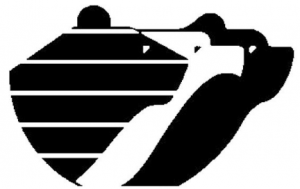
Wildlife Conservation Fund – annual application deadline
The John Ball Zoo Society’s Wildlife Conservation Fund makes grants to enhance or assist the preservation of wild animals and the management of their habitats.
- The principal investigator must be associated with a recognized institution (e.g., accredited zoo, academic institution, or conservation or non-profit organization).
- Grants are generally in the range of US$500 to US$2,500.
Link to website
Merlin Trust
Grants for Young Horticulturalists – applications accepted throughout the year
The Merlin Trust supports young horticulturalists in Britain and Ireland with small grants for study visits related to plants and horticultural gardens in the UK and internationally. Several past grants have been used for projects in the developing world.
- Applicants must be between ages 18 to 35, or in their first five years of a career in horticulture, and have British or Irish nationality.
- Funding is also available for international students studying in the UK.
Link to website
Minnesota Zoo
 The Minnesota Zoo funds conservation projects to promote wildlife and habitat conservation.
The Minnesota Zoo funds conservation projects to promote wildlife and habitat conservation.
Geographical Distribution: Worldwide
Ulysses S. Seal Fund — contacts accepted throughout the year
The Ulysses S. Seal Conservation Grant Program awards small grants to projects promoting the conservation of wildlife around the world. The funding priority is field-based conservation, but worthy zoo-based projects are considered.
- Since its inception in 2002, the fund has awarded over US$460 thousand to more than 200 projects in 50 countries.
- Potential applicants connect by email with a Zoo staff member.
Link to website
Missouri Botanical Garden
Research Fellowships in Plant Science and Conservation — annual application deadline
- The multiple fellowship programs vary in their scope and guidelines.
- Subject areas are conservation biology, ecology, botany, plant sciences, and closely related fields.
- Participating countries and regions are Mexico, Central and South America, Madagascar, Tanzania, and Vietnam.
Link to website
Oklahoma Zoo and Botanical Garden
Conservation Action Now – annual application deadline
The Oklahoma City Zoo makes grants to support imperiled wildlife species, habitats, and their surrounding communities through conservation, research, and education.
- The grant-making program is Conservation Action Now.
- Grant amounts do not exceed US$2,500.
Link to website
Phoenix Zoo
Conservation and Science Grants
The Phoenix Zoo offers seed money to fund critical components of conservation programs.
- The grants support practical projects in conservation science; research; knowledge sharing; ex situ support of in situ conservation; and involvement of local communities.
- Grants are up to US$3,000 for one year.
(Note: The zoo does no longer accept unsolicited proposals.)
Link to website
Pittsburg Zoo
PPG Industries Sustainability and Conservation Fund – annual application deadline
The Pittsburg Zoo makes grants for field studies and cross-disclipinary approaches to conservation in the USA and internationally. Projects outside of the USA require evidence of strong local involvement.
- Grants range from US$1,000 to US$3,000.
Link to website
Riverbanks Zoo and Garden
Satch Krantz Conservation Fund – two application deadlines per year
The Riverbanks Zoo and Garden sponsors the Satch Krantz Conservation Fund to assist conservation biologists in wildlife conservation projects worldwide.
- Grants are for field conservation; habitat management; conservation education; ex situ captive breeding; animal health and welfare; and other themes.
- Grants generally range from US$1,000 to US$5,000.
Link to website
Roger Williams Park Zoo
Sophie Krantz Conservation Fund – annual application deadline
The Roger Williams Park Zoo and the Rhode Island Zoological Society make grants for conservation projects worldwide through the Sophie Krantz Conservation Fund.
- Grants fund multi-disciplinary approaches to biodiversity and ecosystem conservation, and projects that involve in-country collaborators. Additional themes are environmental education; captive propagation programs that favor conservation, and others.
- Applicants can be of any nationality. They must be associated with an organization through which s/he can receive funding.
- Maximum grant size is US$1,000.
(Note: Due to a strategic planning process the zoo is temporarily suspending application submissions.)
Link to website
Royal Botanic Gardens
Bentham-Moxon Trust – annual application deadline
The Royal Botanic Gardens at Kew makes grants for plant collections and field research; visitation to Kew; travel and conferences; small equipment items: and other project support. Funding for the grants is from the Bentham-Moxon Trust.
- Applicants are botanists and horticulturalists, including staff at Kew. Grants should involve a developing country. Most grants are under £5,000.
Note: The Royal Botanic Garden at Edinburgh is similarly a grant maker for international field work, visitation, and project support through the Sibbald Trust.
Link to website
Stanley Smith Horticultural Trust
Grants for Education and Research in Ornamental Horticulture – annual application deadline
The Trust supports research and education on ornamental horticulture, primarily in North and South America.
- Grants are made in support of horticultural research and publication; horticultural gardens accessible to the public; environmental responsibility in matters of plant introduction and management; and educational activities which help advance ornamental horticulture.
- Most grants are to botanical gardens, arboreta, and universities.
- Grants are up to US$25 thousand.
Link to website
Taronga Conservation Society
Grants for Wildlife Research and Conservation – annual application deadline
The Taronga Conservation Society offers conservation field grants for wildlife research, breeding, and field conservation in Australia and internationally.
- Grants are mainly to conservation NGOs and wildlife societies, university researchers, and zoos. The majority of grants are for projects in the Asia-Pacific region and Sub-Saharan Africa.
- Taronga prefers applications requesting less than A$10 thousand.
Link to website
TREE Fund
Research and Education Grants – most programs have an annual application deadline
The TREE Fund makes grants for research and education in the field of arboriculture and urban forestry.
- The Jack Kimmel International Grant Program funds arboriculture research for up to anywhere in the world.
- Grants in the Kimmel program are up to US$10 thousand for projects of one to three years.
Link to website
Zebra Foundation
Grants for Vets and Vet Students — two application deadlines per year
The Zebra Foundation for Veterinary Zoological Education aims to assist veterinary students and veterinary surgeons from anywhere in the world to gain additional experience in veterinary zoological medicine.
- Funded activities include attending relevant organisations; undertaking elective study projects; or zoological research.
- Grants range in the order of £100 to £1000.
Link to website
EDGE Fellowships – annual application deadline
The Zoological Society of London funds fellowships through its EDGE (Evolutionarily Distinct and Globally Endangered) program.
- The program is open to early-career conservation biologists who are nationals or residents of the country in which the EDGE species occur.
- Fellowships include a grant of up to £5,000 per year, plus training and technical support.
Link to website
Zoos Victoria
International Programs and Grants – annual application deadline
Zoos Victoria (Australia) makes grants that aim to engage local communities in sustainable practices that achieve long-term wildlife conservation. Grant-funded projects must demonstrate benefits to both wildlife and people.
- Grants can be made to any organization or group that can meet these objectives.
- Funding is up to AU$20 thousand for projects of one year.
Link to website
Last Profile Review
March 2020


